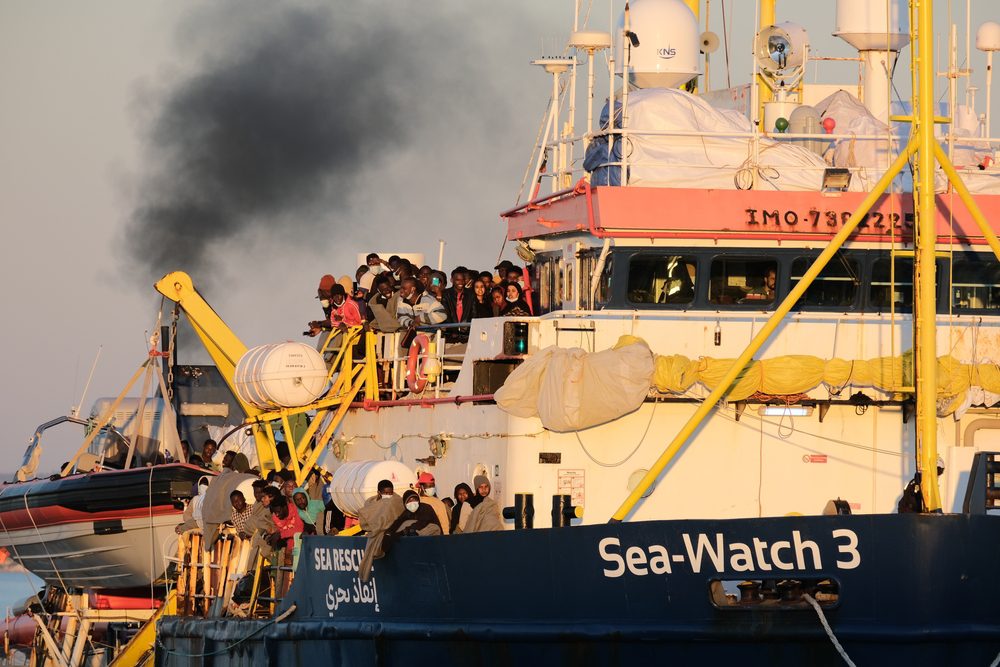
Sea-Watch is among the rescue NGOs that has been observed picking up migrants as soon as they leave Libya to ferry them to Europe.
A broad coalition of socialists, liberals, and the center-right submitted a motion for resolution to the European Parliament on Monday, July 10th, calling for the establishment of an EU-wide search and rescue operation on the Mediterranean and for nearby countries to keep their ports open for NGO ships.
As we reported, MEPs held a heated debate last week about the Libyan smuggler ship that sank recently off the coast of Greece, dragging hundreds of migrants to their deaths. The incident was the second high-casualty accident involving illegal migration on the Central Mediterranean this year, following a similar shipwreck in February, near the coast of Italy.
In both cases, leftist members of the European Parliament accused the conservative governments in Rome and Athens of being at least partially responsible for the deaths by not doing enough during rescue operations and by hindering the work of international rescue NGOs.
Therefore, the European Parliament would like to take the matter into its own hands, pushing for the creation of a new search and rescue (SAR) mission directly controlled and carried out centrally from Brussels. Right now, SAR operations belong to the competence of the nearest member states, with the EU’s border control agency, Frontex, only able to provide surveillance and logistical support.
Having a centralized SAR mission, of course, is not the problematic part for the conservative and anti-illegal migration governments in the region. The real problem, rather, lies in the fact that members of the coalition (S&D, Renew, and EPP) would want to involve “the help and expertise” of specialized NGOs also operating on the sea, in line with the recent recommendations of the EU’s Fundamental Rights Agency (FRA), keeping ports open for their ships and permitting questionable rescue practices.
The Italian and Greek mistrust in the work of several of these NGOs is quite understandable, given the comprehensive evidence uncovered in past years indicating that at least nine of these politically-motivated civil organizations—mostly financed by Soros’ Open Society Foundation—frequently pick up migrants right after leaving the Libyan coasts and ferrying them straight to Europe. They call it rescue, but ‘legal human smuggling’ would perhaps be a more accurate way to describe it.
“All too often, there is clear cooperation on the ground and at sea” between human traffickers and NGOs, the Italian MEP Carlo Fidanza (ECR) said during the debate on February’s shipwreck.
Incroyable ! La fondation Gefira a enregistré pendant 2 mois les mouvements des bateaux des ONG.
— Jean MESSIHA (@JeanMessiha) June 21, 2018
Ces ONG, agents de l’invasion migratoire, vont chercher les migrants au plus près des côtes libyennes. Aucune intervention n'a lieu en pleine mer
La crise migratoire, c'est eux ! pic.twitter.com/n7VKn13gHI
The resolution to prevent outlawing the practice and calling member states to keep their ports open for NGOs, as well as creating a new SAR mission, will be voted on by the plenary this week. But even if it passes (which it likely will), it will be up to the Commission to decide whether to go forward with any of the proposals.
Given the political deadlock around the Migration Pact, the Commission will likely tread lightly around the issue, which means we shouldn’t expect any concrete results in the near future.
